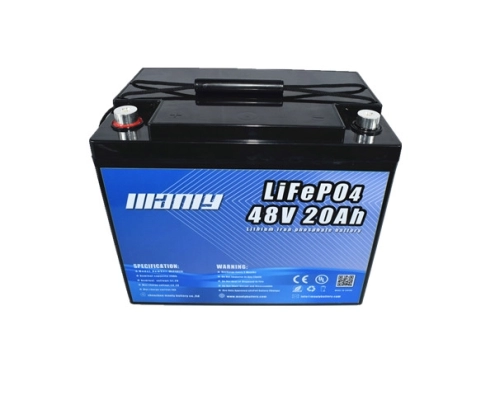In today’s world, where technology is constantly evolving, it’s essential to stay up to date with the latest trends in battery technology. One of the most popular choices for many electronic devices and vehicles is the 48 volt battery. Whether you’re looking to power a solar energy system, an electric bike, or a golf cart, a 48 volt battery can provide you with the energy you need to keep going.
What is a 48 Volt Battery?
A 48 volt battery is a type of rechargeable battery that is commonly used in a variety of applications. It consists of a series of individual cells that are connected in a series to provide a total voltage of 48 volts. These batteries are known for their high energy density, long lifespan, and reliable performance.
Benefits of Using a 48 Volt Battery
There are several benefits to using a 48 volt battery, including:
- Higher Power Output: 48 volt batteries are capable of delivering higher power output compared to lower voltage batteries.
- Longer Runtime: With a higher voltage, 48 volt batteries can provide longer runtime for your devices.
- Efficiency: These batteries are known for their high efficiency, which means they can deliver more energy while consuming less power.
- Versatility: 48 volt batteries can be used in a wide range of applications, making them a versatile energy solution.
Factors to Consider When Buying a 48 Volt Battery
When it comes to purchasing a 48 volt battery, there are several factors to consider to ensure you’re getting the right product for your specific needs:
Voltage and Capacity
The first thing to consider is the voltage and capacity of the battery. A 48V 20Ah battery, for example, would provide a total energy capacity of 960 watt-hours (Wh). Make sure to choose a battery with the right voltage and capacity to meet your power requirements.
Battery Chemistry
Different types of batteries are available on the market, each with its own set of advantages and disadvantages. Common battery chemistries for 48 volt batteries include lithium-ion, lead-acid, and nickel-cadmium. Consider the specific needs of your application to determine which battery chemistry is best suited for you.
Cycle Life
Cycle life refers to the number of charge/discharge cycles a battery can undergo before its capacity significantly decreases. Higher cycle life batteries are more durable and cost-effective in the long run.
Safety Features
Safety is paramount when dealing with high-voltage batteries. Look for batteries with built-in safety features such as overcharge protection, short-circuit protection, and temperature regulation to ensure safe operation.
Brand Reputation
It’s essential to purchase a 48 volt battery from a reputable manufacturer with a proven track record of quality and reliability. Research different brands and read customer reviews to make an informed decision.
Conclusion
In conclusion, a 48 volt battery can be a reliable and efficient energy solution for a variety of applications. By considering factors such as voltage, capacity, battery chemistry, cycle life, safety features, and brand reputation, you can make an informed decision when purchasing a 48 volt battery for your device. Stay informed about the latest advancements in battery technology to ensure you’re getting the best product for your needs.
